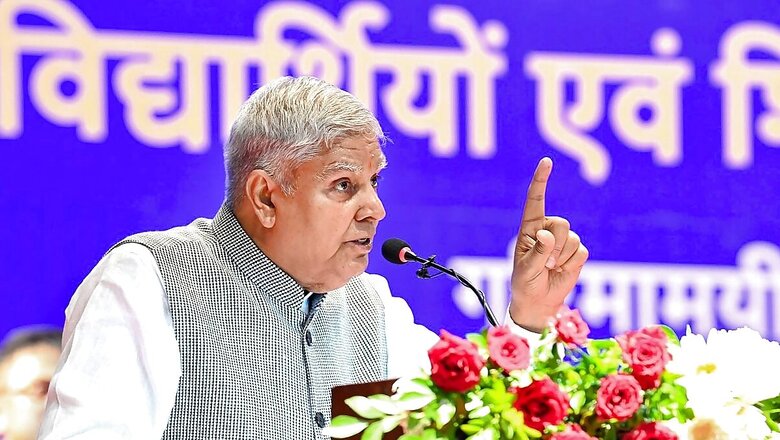
views
Vice President Jagdeep Dhankhar on Saturday said commercialisation of education is adversely impacting its quality which is not good for the future of the nation.
Speaking at a function organised by a private educational institute in Rajasthan’s Sikar, Dhankhar said, “I see all around that what began as charitable work has now become commerce. Education becoming a business is not good for the future of the nation.”
Stating that education was never a source of income but a medium of sacrifice and charity to build a healthy society, Dhankhar rued that today it has become a commodity which is being sold for profit, thus adversely impacting its quality.
“In some cases, it is even taking the shape of extortion. This is a matter of concern,” he said.
“While educational institutions should be financially sustainable, it is the responsibility of the industry to nurture them from time to time. Corporate houses should use their CSR funds liberally to build institutions and fund new courses. This will help the nation progress,” Dhankhar said.
He also said that industries are the biggest beneficiaries of research and innovations, which give power to the nation in front of the world.
Students today want to study abroad but there are many opportunities in India and institutions and industry leaders should make them aware about them to stop the brain drain and loss of foreign exchange, the vice president said.
“The youth generally run behind 8-10 types of jobs but there are huge opportunities across various sectors. The basket of opportunities is getting bigger everyday but most of our students are not fully exposed to it,” Dhankhar said.
“There is a need to create awareness among the youth about the ever-increasing basket of opportunities. I call upon the educational institutions and industry leaders to hold seminars and make the students aware about the different avenues available to them,” he added.
Calling for optimum use of technology to give quality education to the students, the vice president also praised the National Education Policy which he called a “game changer”.




















Comments
0 comment